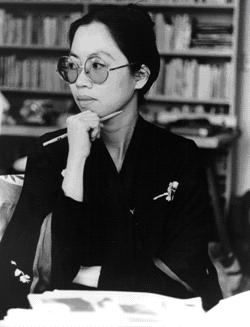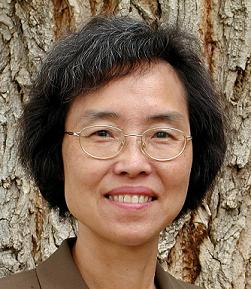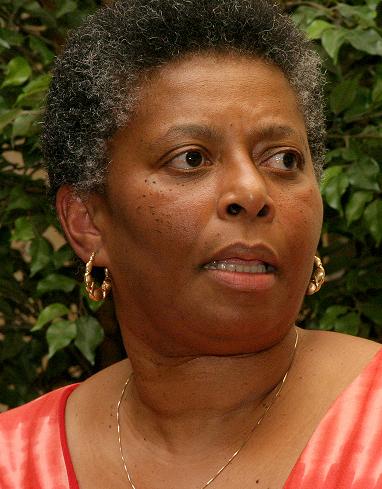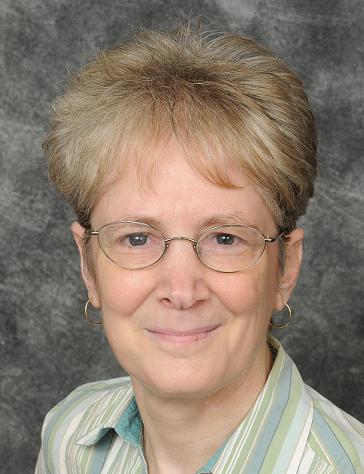A19–121
Women, Theological Education, and Pastoral Formation in World Christianity
Saturday, 9:00 AM–11:30 AM
InterContinental–InterContinental Ballroom C*
Sponsored by the World Christianity Group
Jayachitra Lalitha, Tamilnadu Theological Seminary, Presiding
Adelaide Boadi, Drew University
Beyond the "Rocking of Cradles" — Christianity's Unsung Heroines: The Case of Ghana/West Africa
William Yoo, Emory University
Battle Hymn of a Korean Tiger Mother: Theological Education and Christian Formation in the Life and Writings of Kim Hwal-lan (Activist, Educator, Liberationist, and Methodist)
Katie Schubert, Claremont Graduate University
Cambodian Women Pastor Training: Empowerment or Colonization?
Sathianathan Clarke, Wesley Theological Seminary
Dalit Theological Education: Feminist, Postcolonial, and Inner-colonial Perspectives
Elaine Padilla, New York Theological Seminary, Responding
A19–123
From "Double Consciousness" to the "Black Atlantic": Theorizing the African Diaspora and African Diaspora Subjectivities
Saturday, 9:00 AM–11:30 AM
Marriott Marquis–Nob Hill A*
Sponsored by the African Diaspora Religions Group
Maha Marouan, University of Alabama, Presiding
Torin Alexander, Saint Olaf College
African Diaspora Subjectivities and Religious Experience: The Pursuit of Wholeness
Karyna Do Monte, Boston University
Brazilian Candomble Meets Ecology: A Samba Plot in the Rio de Janeiro Carnival
Michelle Gonzalez Maldonado, University of Miami
Translator of the Afro-Cuban Religious World: Lydia Cabrera
Mary Diggin, Pacifica Graduate Institute
Damballah and Maman Brigitte: The Irish Influence on Vodou Lwas
Charles H. Long, Chapel Hill, NC, Responding
A19–131
Southeast Asian Religion in Two Perspectives: Women and Colonialism
Saturday, 9:00 AM–11:30 AM
InterContinental–Cathedral Hill*
Sponsored by the Religion in Southeast Asia Group
Jason Carbine, Whittier College, Presiding
Samphoas Huy, Rutgers University
Rebirth and the Golden Lotus: Midwives and the Reconciliation of Cambodia after the Khmer Rouge Genocide
Kunthy Seng, Documentation Center of Cambodia
Copresenting with Samphors Huy and Douglas Irvin
Douglas Irvin, Rutgers University
Copresenting with Samphors Huy and Kunthy Seng
Cuong Mai, University of Vermont
Avalokitesvara Bodhisattva (Quan Âm) in Medieval Vietnam: Rhetorical and Ritual Contestation in the Realm of Women's Religions
Muhamad Ali, University of California, Riverside
"Verandahs of Mecca and Medina": Colonialism and Islamic Knowledge in South Sulawesi and Kelantan
Erik Braun, University of Oklahoma
The Science of Buddhism and the Buddhism in Science: Shwe Zan Aung's Representation of Buddhist Thought and Practice
John Clifford Holt, Bowdoin College, Responding
A19–138
Plenaries: Walking with the Unmourned
Saturday, 11:45 AM–12:45 PM
Marriott Marquis–Yerba Buena 9*
Kwok Pui Lan, Episcopal Divinity School, Presiding
 "What is it that makes both talks and silences stained with shame? Sometimes the mind freezes and the heart goes on fasting: name, nation, identity, citizenship disappear. With every step, the world comes to the walker, and all around, on the immense screen of life, every event speaks." In the dense jungle of events, doings, and happenings, history comes in interrelated fragments to be sniffed out, tracked, swallowed, held on, or vomited while walking for survival. The spirit of the walk has led the writer to a whole tradition of independent walkers in ancient Asia, at the same time as it provides her with a link to struggles around the world, more specifically to the transnational struggles of women in the United States, Argentina, Mexico, China, and Tibet. "What is it that makes both talks and silences stained with shame? Sometimes the mind freezes and the heart goes on fasting: name, nation, identity, citizenship disappear. With every step, the world comes to the walker, and all around, on the immense screen of life, every event speaks." In the dense jungle of events, doings, and happenings, history comes in interrelated fragments to be sniffed out, tracked, swallowed, held on, or vomited while walking for survival. The spirit of the walk has led the writer to a whole tradition of independent walkers in ancient Asia, at the same time as it provides her with a link to struggles around the world, more specifically to the transnational struggles of women in the United States, Argentina, Mexico, China, and Tibet.
Panelist:
Trinh T. Minh-Ha, University of California, Berkeley
A19–216
The Politics of Religious Freedom: Historical Perspectives from Egypt and South Asia
Saturday, 1:00 PM–3:30 PM
Moscone Center West–Room 2004*
Sponsored by the Law, Religion, and Culture Group
Kathleen Flake, Vanderbilt University, Presiding
This panel rethinks conventional understandings of secular liberalism by examining the unique historical trajectories of the politics of religious freedom in Egypt, India, and Pakistan. Where many have seen conflict between secular politics and religion, we ask how the techniques of secular-liberal government have regulated religion and produced religious identities. Challenging conventional understandings of religious freedom as a self-evident good, we consider how the politics of religious freedom opens the way to some forms of political demand while foreclosing others. This sheds light on the possible costs of the politics of religious freedom that conventional narratives do not predict. These include the expansion of state power into the private sphere of family life, the production of religious minorities, and the silencing of forms of political demand that are not easily captured in the language of religion.
Hussein Agrama, University of Chicago
The Shape of Religious Freedom: France and Egypt
Cassie Adcock, Washington University, Saint Louis
Indian Secularism as "Tolerance": Religious Freedom Debates of the 1920s
Asad Ahmed, Harvard University
Colonial Governmentality and Religiopolitics: The Case of the Ahmadiyya Inclusion and Exclusion from Islam in South Asia
Saba Mahmood, University of California, Berkeley
Politics of Religious Freedom and the Minority Question: A Geopolitical Problem?
Winnifred Sullivan, State University of New York, Buffalo, Responding
A19–231
Defining Religion in Imperial, Colonial, and Postcolonial Contexts
Saturday, 1:00 PM–3:30 PM
InterContinental–Grand Ballroom C*
Sponsored by the Religion and Colonialism Group
Caleb Elfenbein, Grinnell College, Presiding
Ilyse Morgenstein Fuerst, University of North Carolina, Chapel Hill
"Religion" and Intellectual Empires: Precolonial, South Asian Definitions, and the Study of Religion
Mitch Numark, California State University, Sacramento
Hebrew School in Nineteenth Century Bombay: Protestant Missionaries, Cochin Jews, and the Hebraization of India's Bene Israel Community
Adrian Hermann, University of Basel
Differentiating "Buddhism": The Proliferation of Semantics and Organizations of "Religion" in Nineteenth and Early Twentieth Century Buddhist Asia
Syed Adnan Hussain, University of Toronto
Three Transformations: The Evolution of Pakistan's Blasphemy Law
A19–302
Gender Theory, Intersectionality, and Justice
Saturday, 4:00 PM–6:30 PM
Moscone Center West–Room 2004*
Sponsored by the Gender Theory, Intersectionality, and Justice Cluster (Women and Religion Section; Feminist Theory and Religious Reflection Group; Gay Men and Religion Group; Men, Masculinities, and Religions Group; Womanist Approaches to Religion and Society Group; and Queer Studies in Religion Consultation)
Christine E. Gudorf, Florida International University, Presiding
A complex array of social structures of inequality and oppression, both overt and internalized, sustain persistent patterns of injustice and, conversely, hegemony. We will discuss four papers that expose the intricacy, convolution, and density at the intersections of gender theory and other postmodern discourses as they seek to articulate persuasive and powerful understandings of justice.
Katherine K. Bain, Davenport, IA
The Role of Socioeconomic Analysis in Theorizing Gender and Religious Status
Rosemary Blackburn-Smith Kellison, Florida State University
Feminism and Imperialism as Just Causes for War?: Assessing the Justice of the War in Afghanistan
Wesley Barker, Emory University
Sexual Difference and the Crisis of Representation in Postcolonial Discourse: Reading Justice, Dispossession, and Resistance in Spivak’s "Echo"
Jared Vazquez, Phillips Theological Seminary
I am ___: Queer/Ethnic Identity in Contemporary Western Contexts
Pamela Lightsey, Garrett-Evangelical Theological Seminary, Responding
A19–310
Trinh T. Minh-ha's When the Moon Waxes Red: Representation, Gender, and Cultural Politics (Routledge, 1991) and Woman, Native, Other: Writing Postcoloniality and Feminism (Indiana University Press, 1989)
Saturday, 4:00 PM–6:30 PM
Moscone Center West–Room 2009*
Sponsored by the Theology and Religious Reflection Section
Anne Joh, Garrett-Evangelical Theological Seminary, Presiding
Panelists:
Susan Abraham, Harvard University
Sigridur Gudmarsdottir, Evangelical Lutheran Church of Iceland
Nami Kim, Spelman College
Wong Wai-Ching Angela, Chinese University of Hong Kong
Trinh T. Minh-Ha, University of California, Berkeley, Responding
A19–311
Contemporary Transformations of Indigenous Religious Culture in West Africa
Saturday, 4:00 PM–6:30 PM
Marriott Marquis–Walnut*
Sponsored by the African Religions Group
Danoye Oguntola-Laguda, Lagos State University, Presiding
Joseph Hellweg, Florida State University
Words as Icons: Lived Religion, Ideology, and Visual Culture in the N’ko Alphabet and Movement of West Africa
Albert K. Wuaku, Florida International University
"Sakawa": Transforming the Internet into Ritual Space in Ghana and Expanding the African Indigenous Religious Landscape Globally
Seth Tweneboah, Florida International University
Pentecostalism, Witchcraft Accusation, and Symbolic Violence in Ghana: An Analysis of Pierre Bourdieu's Concept of Habitus
Sodiq Yushau, Texas Christian University, Responding
A19–404
Plenaries: Presidential Address — Empire and the Study of Religion
Saturday, 8:00 PM–9:00 PM
Marriott Marquis–Yerba Buena 9*
Otto A. Maduro, Drew University, Presiding
 The academic study of religion that emerged in the nineteenth century was shaped by the cultural imaginary of empire. How has this legacy impacted the field in today's postmodern and postcolonial world? With the rise of China and other emerging markets and the shift of geopolitics, what will religious studies look like in the future? Kwok Pui Lan, author of the critically acclaimed volume Postcolonial Imagination and Feminist Theology (Westminster John Knox Press, 2005) and editor of the award-winning book Hope Abundant: Third World and Indigenous Women's Theology (Orbis Books, 2010), will offer her reflections, drawing examples from the study of Christianity and Asian religious traditions. The academic study of religion that emerged in the nineteenth century was shaped by the cultural imaginary of empire. How has this legacy impacted the field in today's postmodern and postcolonial world? With the rise of China and other emerging markets and the shift of geopolitics, what will religious studies look like in the future? Kwok Pui Lan, author of the critically acclaimed volume Postcolonial Imagination and Feminist Theology (Westminster John Knox Press, 2005) and editor of the award-winning book Hope Abundant: Third World and Indigenous Women's Theology (Orbis Books, 2010), will offer her reflections, drawing examples from the study of Christianity and Asian religious traditions.
Panelists:
Kwok Pui Lan, Episcopal Divinity School
A20–136
Plenaries: Envisioning the Study of Religion in the Twenty-first Century
Sunday, 11:45 AM–12:45 PM
Marriott Marquis–Yerba Buena 9*
Kwok Pui Lan, Episcopal Divinity School, Presiding
The panelists will offer, from different perspectives, their reflections on how the field of religious studies has changed during their career, some of the issues the field needs to address, the turns and twists in their own scholarship, the challenges and changing roles of the American Academy of Religion, and the visions and constraints for change in the study of religion in the United States and Europe.
Panelists:
Laura E. Donaldson, Cornell University
Richard King, University of Glasgow
Donald S. Lopez, University of Michigan
A20–209
Religious Encounters in Colonial South Asia
Sunday, 1:00 PM–2:30 PM
InterContinental–Union Square*
Sponsored by the Religion in South Asia Section
Chad Bauman, Butler University, Presiding
Religious encounters between Europeans and South Asians in colonial India were often characterized by attempts to dominate, control, and even efface rival traditions. They were also occasions for innovation and creativity, involving religious leaders who, through these encounters, transformed their traditions in profound ways. Thus these instances of engagement are important for analyses of religious change in South Asia and in imperial contexts more generally. The papers in this panel will examine how such encounters shaped participants' understandings of their own traditions and of the traditions of others. We will argue that although these encounters must be understood in terms of disparities of power, we also need to recognize that none emerged from them unchanged. We will examine the ways that these encounters transformed a variety of traditions in colonial South Asia, both Hindu and Christian, and the ways that they shaped emerging conceptions of "religion" and "religions."
Will Sweetman, University of Otago
Empire and Mission in an Early Nineteenth Century "Pamphlet War"
Ulrike Schroeder, University of Heidelberg
Mapping the Fields of Harvest: Missionary Theories of Religion and Ritual in Colonial South India
Richard S. Weiss, Victoria University
Conflicts of Authority in Colonial South Asia
Eliza Kent, Colgate University, Responding
A20–211
Exploring Desire and Religion
Sunday, 1:00 PM–2:30 PM
InterContinental–Twin Peaks*
Theology and Religious Reflection Section
Krista Hughes, Hanover College, Presiding
An Yountae, Drew University
"O Love, You Ever Burn and Are Never Extinguished": Decolonial Love and the Lustful Resurrection of Displaced Desires/Bodies
Kevin Minister, Southern Methodist University
Christian Desire and Economic Power: On the Production of Desire in Economics and Religion
Kelly Denton-Borhaug, Moravian College
Detranscendentalizing War, Decentering Sacrifice
Alan Van Wyk, Claremont Graduate University
Rupturing Desire: The Theopolitical Possibilities of Judith Butler
A20–212
African Traditions and Peacemaking in Situations of Political Conflict
Sunday, 1:00 PM–2:30 PM
Marriott Marquis–Sierra C*
Sponsored by the African Religions Group
Afe Adogame, University of Edinburgh, Presiding
Mari Pontinen, Finnish Evangelical Lutheran Mission
Botho and Modernization
Danoye Oguntola-Laguda, Lagos State University
African Traditions and Peacemaking in Situations of Political Conflict: Nigeria as a Case Study
Enoch Olujide Gbadegesin, Rice University
Copresenting with Danoye Oguntola-Laguda
Jude Aguwa, Mercy College
Boko Haram: The "Nigerian Taliban" and Its National and Global Consequences
Isabel Apawo Phiri, University of KwaZulu-Natal, Responding
A20–274
Land, Sovereignty, and Religion in Native North America
Sunday, 3:00 PM–4:30 PM
InterContinental–Sutter*
Sponsored by the Law, Religion, and Culture Group and Native Traditions in the Americas Group
Michael Zogry, University of Kansas, Presiding
Lisa Dellinger, Garrett-Evangelical Theological Seminary
The Christian Doctrine of Discovery: Illusions of Grandeur
Kathleen M. Sands, University of Hawai'i, Manoa
Territory, Wilderness, Property, and Reservation: Land and Religion in Native American Supreme Court Cases
Nicholas Shrubsole, University of Waterloo
Property, Religion, and the Legal Relationship between Indigenous Peoples and the Canadian State: Historical Roots and Contemporary Issues
Steve Newcomb, Indigenous Law Institute, Responding
A20–314
Marion Grau's Rethinking Mission on the Postcolony: Salvation, Society and Subversion (T & T Clark International, 2011)
Sunday, 5:00 PM–6:30 PM
Moscone Center West–Room 3000*
Sponsored by the Theology and Religious Reflection Section
Paul Lim, Vanderbilt University, Presiding
Panelists:
Jeannine Hill Fletcher, Fordham University
Mary-Jane Rubenstein, Wesleyan University
Willie J. Jennings, Duke University
Gerald West, University of KwaZulu-Natal
Marion S. Grau, Graduate Theological Union, Responding
A20–320
Behind Enemy Lines
Sunday, 5:00 PM–6:30 PM
Marriott Marquis–Yerba Buena 3*
Sponsored by the Indigenous Religious Traditions Group
Jace Weaver, University of Georgia, Presiding
The question of where indigenous religious traditions fit in within the academic study of religion has been longstanding, contentious, and fraught. Should they even be considered "religions" at all? Thus both scholars of such traditions and practioners often find themselves "behind enemy lines." How does one explain these traditions to the academy? How do practitioners cope with often being demonized by "mainstream" religions? In particular, what have interactions with Christianity been like?
Lee Gilmore, California State University, Northridge
Pagans at the Parliament: Interfaith Dialogue between Pagan and Indigenous Communities
Sabina Magliocco, California State University, Northridge
Copresenting with Lee Gilmore
Carmen Lansdowne, Graduate Theological Union
"Dances with Dependency": An Indigenous Theological Exploration of Dependency and Development Theories and Their Influence on Liberation Theology for the Twenty-first Century
Comfort Max-Wirth, Florida International University
The Occult and Politics in Ghana: Tapping into the Pentecostal Discourse of Demonizing African Traditional Religion as a Political Strategy
A20–402
Plenaries: New Thoughts on Solidarity
Sunday, 8:00 PM–9:00 PM
Marriott Marquis–Yerba Buena 9*
 Kwok Pui Lan, Episcopal Divinity School, Presiding Kwok Pui Lan, Episcopal Divinity School, Presiding
This lecture will consider the relationship between sexual and religious minorities in the context of the right to appear in public. Additionally, the lecture will address the affiliative meanings of queer in light of new efforts to separate queer politics from antiracist and anticolonial struggles.
Panelist:
Judith Butler, University of California, Berkeley
A21–111
Bible and Colonization in the Mediterranean
Monday, 9:00 AM–11:30 AM
InterContinental–Nob Hill*
Sponsored by the Bible in Racial, Ethnic, and Indigenous Communities Group
Francisco Lozada, Brite Divinity School, Presiding
Panelists:
Adriana Destro, University of Bologna
Safwat Marzouk, Associated Mennonite Biblical Seminary
Panagiotis Kousoulis, University of the Aegean
Marinos Pourgouris, University of Cyprus
Yael Munk, Open University of Israel
Michel Andraos, Catholic Theological Union
A21–117
The Doctrine of Christian Discovery and Conversations with the Vatican
Monday, 9:00 AM–11:30 AM
InterContinental–Union Square*
Sponsored by the Indigenous Religious Traditions Group and Roman Catholic Studies Group
Mary N. MacDonald, Le Moyne College, Presiding
Indigenous leaders such as Oren Lyons and the Thirteen Indigenous Grandmothers have been attempting to discuss the Doctrine of Christian Discovery (DoCD) with the Vatican for many years now. The DoCD originated with the Papal Bulls in the fifteenth century — that which sanctioned Christopher Columbus's conquest of the Americas. It found full expression with the Johnson v. M'Intosh United States Supreme Court decision. Conversations with the Vatican's Permanent Observer at the United Nations — at the United Nations Permanent Forum on Indigenous Issues (UNPFII) — have played a central role in Indigenous Peoples/Vatican conversations and promise to be even more crucial as the 2011 United Nations focuses on the global environment. This panel will explore the far-reaching effects of the DoCD and explore the recent efforts of various groups — religious and secular; Indigenous and non-Indigenous — to repudiate the DoCD by adopting, without qualification, the United Nations Declaration on the Rights of Indigenous Peoples (September 2007).
Panelists:
Philip P. Arnold, Syracuse University
Steve Newcomb, Indigenous Law Institute
Chris Peters, Seventh Generation Fund for Indian Development
Theresa Reeder, Syracuse University
A21–137
Plenaries: Lifetime of Learning
Monday, 11:45 AM–12:45 PM
Marriott Marquis–Yerba Buena 9*

Kwok Pui Lan, Episcopal Divinity School, Presiding
In this plenary, Katie Geneva Cannon, a trailblazer in womanist thought and ethics and Judith Plaskow, a pioneer in Jewish feminist theology and religious thought, will discuss lessons gleaned from their learning of a lifetime. Cannon's books include Black Womanist Ethics (Scholars Press, 1988), Katie's Canon: Womanism and the Soul of the Black Community (Continuum, 1995), and Teaching Preaching: Isaac Rufus and Black Sacred Rhetoric (Continuum, 2002). Plaskow is the author of Sex, Sin, and Grace: Women’s Experience and the Theologies of Reinhold  Niebuhr and Paul Tillich (University Press of America, 1979), Standing Again at Sinai: Judaism from a Feminist Perspective (HarperCollins, 1990), and The Coming of Lilith: Essays on Feminism, Judaism, and Sexual Ethics 1972–2003 (Beacon Press, 2005). Niebuhr and Paul Tillich (University Press of America, 1979), Standing Again at Sinai: Judaism from a Feminist Perspective (HarperCollins, 1990), and The Coming of Lilith: Essays on Feminism, Judaism, and Sexual Ethics 1972–2003 (Beacon Press, 2005).
Panelists:
Katie G. Cannon, Union Presbyterian Seminary
Judith Plaskow, Manhattan College
A21–209
Law, Legislation, and Religious Formations in South Asian Nation-States
Monday, 1:00 PM–3:30 PM
Marriott Marquis–Yerba Buena 7*
Sponsored by the Religion in South Asia Section
Peter Gottschalk, Wesleyan University, Presiding
This session focuses on the influence of the law on religious practice in South Asian secular democracies. The constitutions of India, Sri Lanka, Nepal, and Bhutan guarantee the freedom of religion, but differ in the politics behind the drafting of constitutional laws; assumed definitions of religion; limits on religious freedom; and varying attitudes toward minority religions. Such differences inform the writing of new laws and court judgments, which in turn challenge, affirm and change religious practices. Moreover, citizens may affirm or contest their understanding of religious freedom through ritual enactment; or they may directly challenge government regulations and attempted reforms of religion through legal appeals. The papers in this session thus highlight the politics of crafting constitutional laws governing religion; the penetration of law into religious life; religious practice as a site of affirmation or contestation of constitutional ideals; and the difficulty of creating effective legal reforms of religious practice.
Benjamin Schonthal, University of Chicago
Religious Rights at the End of Empire: Debates on Law and Religion in Late Colonial Sri Lanka
Ginni Ishimatsu, University of Denver
The Judicialization of Hindu Temples in Tamil Nadu
James Ponniah Kulandai Raj, Jnana Deepa Vidyapeeth
Dreaming India and Being Indian
Kay K. Jordan, Radford University
Contemporary Sati Legislation: Changing the Hindu Ideal of Womanhood
Robert A. Yelle, University of Memphis, Responding
A21–212
Postcolonialism and Poststructuralism in the United States
Monday, 1:00 PM–3:30 PM
Moscone Center West–Room 3010*
Sponsored by the Theology and Religious Reflection Section
Susan Abraham, Harvard University, Presiding
Panelists:
John C. Hawley, Santa Clara University
Nancy Bedford, Garrett-Evangelical Theological Seminary
M. Gail Hamner, Syracuse University
Mark Lewis Taylor, Princeton University
A21–223
Resilience and Revitalization in Indigenous California
Monday, 1:00 PM–3:30 PM
Moscone Center West–Room 2006*
Sponsored by the Native Traditions in the Americas Group
Natalie Avalos Cisneros, University of California, Santa Barbara, Presiding
Once home to communities speaking approximately eighty languages, over the past several decades California has witnessed a remarkable public resurgence of Native traditions and languages, built on resilient cultural elements. These papers explore how Native traditions in the "digital age" are being transmitted to future generations through the modes of music and dream.
Cutcha Risling Baldy, University of California, Davis
Xoc-itch’iswhalte (They Will Beat Time with Sticks Over Her): The Hupa Flower Dance Ceremony and Elements of Spirituality in Song
Melissa Leal, University of California, Davis
Asumpa (To Flow): Native American Language and Cultural Revitalization through Hip-Hop
Dennis Kelley, University of Missouri
Religion, American Indians, and Ecocriticism: Conceptualizing Indigenous Spirituality through Environmental Activism
Chris Peters, Seventh Generation Fund for Indian Development, and Ines M. Talamantez, University of California, Santa Barbara, Responding
A21–234
Theory and Politics of Religion Education in Public Schools
Monday, 1:00 PM–3:30 PM
Moscone Center West–Room 2004*
Sponsored by the Religion Education in Public Schools: International Perspectives Group
Bruce Grelle, California State University, Chico, Presiding
A discussion of civic versus academic rationales for the inclusion of religion education in public schools and the relation of religion education to politics in Denmark, Lebanon, South Africa, Tunisia, and the United States.
Bronwyn Roantree, Harvard University
Religion and Public Education in Postcolonial Tunisia: Histories and Opportunities
Daniel Cervan Gil, Saint Paul University
Religion in Education: A Contributing Factor to Polarization or Dialogue in the Socialization Process of Lebanese Youth? Insights from the Northern Irish Experience
Mark Sedgwick, University of Aarhus
The Construction of Islam in Danish Public Schools
Kaira Schachter, University of Colorado, Boulder
Towards a More Democratic Pedagogy: A Pragmatic Approach to Religious Studies in American Public Education
A22-103
Maps: Orientations and Disorientations
Tuesday, 9:00 AM–11:30 AM
Marriott Marquis–Yerba Buena 2*
Sponsored by the Comparative Studies in Religion Section
Stephen Prothero, Boston University, Presiding
This session will explore maps as authoritative depictions of topographic, political, social, and sacred space. These depictions wield authority and on the surface they claim to represent objective reality to the viewer. However, when one begins to examine and compare maps one realizes that they present strongly biased orientations to geographic space — orientations that suppress alternative objectives. Maps, by their very nature, construct a specific orientation and impose that orientation, attempting to control how individuals and groups see space, its defining elements, its boundaries, etc. In addition, maps in effect "erase" elements of topography when those elements do not serve the map-makers' purposes, and they erase people who orient themselves differently to the depicted space. Finally, maps construct distorted notions of relative size and scale, and they visually silence entire populations of marginalized or oppressed inhabitants.
Laura Elena Hinojosa, Instituto Nacional de Antropologia e Historia
Traces of the Past: Spanish and Indigenous Perception of Space in Colonial Maps
Martha Finch, Missouri State University
The Whole Earth is the Lord's Garden: Mapping Early New England
Peter Gottschalk, Wesleyan University
Mapping Boundaries: The Science of Knowing Communal Identity in British India
Molly Bassett, Georgia State University, Responding
A22–109
The Impact of Print Technology in the Nineteenth Century
Tuesday, 9:00 AM–11:30 AM
Moscone Center West–Room 2018*
Sponsored by the Religion in South Asia Section
Rebecca Manring, Indiana University, Bloomington, Presiding
This session explores the impact of print technology in the nineteenth century on religious texts, authorities, and representations in the crossfire of nationalist and colonialist concerns in India. The complex tradition of manuscript production was transformed by the introduction of print and the first two papers explore this transition, the first detailing the religious event of producing a manuscript and the second the introduction of lithography which enabled mass distribution but mimicked manuscripts in many ways and then the gradual transformation to book formats. This process occurs, however, in the context of interweaving colonialist and nationalist discourses. The third paper explores vernacular translations of classic works in print and an emerging new venue for commentary and challenge to dominant Sanskrit readings and Indological methods. The final two papers delve more deeply into the colonial and nationalist nexus of debate in the presentation of Hinduism and gender via satire and sainthood.
James McHugh, University of Southern California
Ink, Leaves, and Time: The Material and Social Networks of Religious Manuscripts in Premodern Hindu South Asia
James P. Hare, Columbia University
Indian Publishers and Nabhadas's Bhaktamal
Peter Valdina, Emory University
The Mother of Yoga?: Print, Patanjali, and Colonial Calcutta
Paul B. Courtright, Emory University
Satirizing the "Baboo" in Early Nineteenth Century Calcutta
Nancy M. Martin, Chapman University
From Bhakti Saint to National Heroine: Print and the Canonization of Mirabai
*Room locations are subject to change. Please check your Program Book onsite to confirm the location when you arrive at the Annual Meeting.
|
![PDF-NOTE: Internet Explorer Users, right click the PDF Icon and choose [save target as] if you are experiencing problems with clicking.](http://rsnonline.org/templates/rsntemplate-smallmasthead/images/pdf_button.png)

![PDF-NOTE: Internet Explorer Users, right click the PDF Icon and choose [save target as] if you are experiencing problems with clicking.](http://rsnonline.org/templates/rsntemplate-smallmasthead/images/pdf_button.png)
